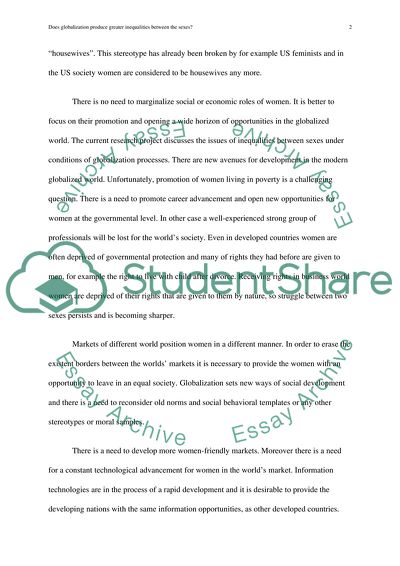Cite this document
(Does Globalization Produce Greater Inequalities between the Sexes Coursework, n.d.)
Does Globalization Produce Greater Inequalities between the Sexes Coursework. Retrieved from https://studentshare.org/gender-sexual-studies/1764649-does-globalisation-produce-greater-inequalities-between-the-sexes
Does Globalization Produce Greater Inequalities between the Sexes Coursework. Retrieved from https://studentshare.org/gender-sexual-studies/1764649-does-globalisation-produce-greater-inequalities-between-the-sexes
(Does Globalization Produce Greater Inequalities Between the Sexes Coursework)
Does Globalization Produce Greater Inequalities Between the Sexes Coursework. https://studentshare.org/gender-sexual-studies/1764649-does-globalisation-produce-greater-inequalities-between-the-sexes.
Does Globalization Produce Greater Inequalities Between the Sexes Coursework. https://studentshare.org/gender-sexual-studies/1764649-does-globalisation-produce-greater-inequalities-between-the-sexes.
“Does Globalization Produce Greater Inequalities Between the Sexes Coursework”. https://studentshare.org/gender-sexual-studies/1764649-does-globalisation-produce-greater-inequalities-between-the-sexes.


